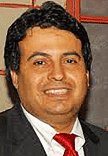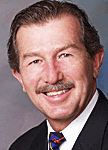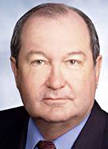County Attorney Says Investigation of Whether City Council Violated Open Meetings Act Is Still Ongoing
A year ago today, The Austin Bulldog published an investigative report (“Open Meetings, Closed Minds”) about the years-long practice in which the mayor and council members held regularly scheduled, private, round-robin meetings preceding each scheduled council meeting.
 That same day, The Austin Bulldog reported that County Attorney David Escamilla announced that he was conducting an inquiry into a possible violation of the Texas Open Meetings Act, based on a complaint filed with his office by a citizen (later identified as civic activist Brian Rodgers, a key source in The Austin Bulldog’s investigation).
That same day, The Austin Bulldog reported that County Attorney David Escamilla announced that he was conducting an inquiry into a possible violation of the Texas Open Meetings Act, based on a complaint filed with his office by a citizen (later identified as civic activist Brian Rodgers, a key source in The Austin Bulldog’s investigation).
Now, one year later, the county attorney has not made a public statement about whether he thinks it was legal for the Austin City Council to regularly meet one-on-one and two-on-one in secret to discuss items on the city council’s upcoming agendas.
What has become of that investigation?
The Austin Bulldog asked County Attorney Escamilla.
“The investigation is still ongoing and we hope to complete it in the near future,” Escamilla said Tuesday. He declined to elaborate further.
That’s cold comfort for the seven members who were on the City Council when the story broke. With a statute of limitations of two years on the misdemeanor offenses they may have committed, they remain in legal limbo until Escamilla wraps up his investigation and determines how he will proceed.

Former Council Member Randi Shade was on the City Council from June 2008 to June 2011. She regularly participated in those private meetings with the mayor and other council members. Shade is now a homemaker and she would like to find closure.
When informed of the county attorney’s statement, Shade told The Austin Bulldog, “He’s been saying the same thing for a year.”
Shade said she has been cooperating fully with the investigation and has submitted everything requested.
“They’ve gathered a ton of information. I haven’t heard anything (about the outcome of the investigation),” she said. “After a year, I don’t know how you define this as ‘speedy,’” as in speedy justice.
Mayor Lee Leffingwell and the other five council members who are also being investigated—Sheryl Cole, Mike Martinez, Laura Morrison, Chris Riley, and Bill Spelman—did not respond to an e-mail inviting comments for this story.

Bill Aleshire of Austin-based Riggs Aleshire & Ray PC, is a longtime volunteer attorney for the Freedom of Information Foundation of Texas media hotline. In addition, he is The Austin Bulldog’s attorney in two lawsuits against the city and council members concerning lack of responsiveness to requests filed under the Texas Public Information Act. He emphasized the importance of the issues involved in the county attorney’s investigation.
“The City Council’s actions, exposed by The Austin Bulldog, threaten the foundation of open government. If an entire city council can have secret face-to-face, round-robin discussions about the upcoming meeting agenda, then the Open Meetings Act is useless, and public council meetings are nothing but rehearsed Kabuki theatre giving the pretense of government operating in the sunshine.”

One of the most respected attorneys in Texas on the subject of the Open Meetings Act is Joe Larsen, special counsel in the Houston office of the international law firm Sedgwick LLP. The nonprofit Freedom of Information Foundation of Texas in 2010 awarded Larsen its prestigious James Madison Award, named for the fourth president of the United States and author of the Bill of Rights.
“I think it’s important that the investigation be completed as soon as reasonably possible so as to make a public record of the findings,” Larsen said, adding, “Far be it from me to say what resources are available” for the investigation.
“If a violation of the Texas Open Meetings Act is found and publicized, it will act as a deterrent for all governmental bodies that might consider doing something similar,” he said.
Larsen noted that the city council has stopped holding the private meetings and said, “However bad this practice was, one should really commend the governmental body for doing the right thing.”
Council members still at risk of prosecution
The county attorney’s investigation focuses on whether the members of the Austin City Council have violated Section 551.143 of the Texas Open Meetings Act, which delineates the nature of an offense that would constitute a conspiracy to circumvent the Act and establishes a penalty, as follows:
(a) A member or group of members of a governmental body commits an offense if the member or group of members knowingly conspires to circumvent this chapter by meeting in numbers less than a quorum for the purpose of secret deliberations in violation of this chapter.
(b) An offense under Subsection (a) is a misdemeanor punishable by a fine of not less than $100 or more than $500; confinement in the county jail for not less than one month or more than six months; or both the fine and confinement.
In the introduction to the Open Meetings 2012 Handbook, Texas Attorney General Greg Abbott wrote, “Texas courts have upheld the statutory duty of public officials to conduct open meetings, except in certain limited circumstances, and have affirmed that ignorance of the law does not shield anyone from compliance with the law.”
Attorney Larsen underlined the fact that ignorance of the law is never a defense if a crime has been committed. And he said ignorance of the law is highly unlikely in the circumstances described in The Austin Bulldog’s investigative report.
“The Texas Attorney General set up a system for public officials to learn how the open meetings law works, so it’s inconceivable they didn’t know what the law requires,” Larsen said, referring to the online course that newly elected public officials are required to complete.
Opinions issued by the Texas Attorney General also addressed the kind of situation described in The Austin Bulldog’s investigative report.
Attorney General Opinion DM-95, issued by Dan Morales March 4, 1992, states, “Presumably, when a group of people act in concert, some meeting of the minds has occurred to make that action possible. With respect to actions taken by governmental bodies, it is the process by which this meeting of the minds occurs that the act is intended to open to public scrutiny.”
More recently, Attorney General Greg Abbott issued Opinion No. GA-0326 on May 18, 2005, which specifically addresses the kinds of meetings that were being held among the mayor and council members.
“[W]e construe Section 551.143 to apply to members of a governmental body who gather in numbers that do not physically constitute a quorum at any one time but who, through successive gatherings, secretly discuss a public matter with a quorum of that body. In essence, it means a ‘daisy chain of members the sum of whom constitute a quorum’ that meets for secret deliberations.”
GA-0326 further states, “As a general matter, Texas civil courts, in construing the OMA (Open Meetings Act), rely on the OMA’s core purpose, which is to guarantee access to the actual decision-making process of governmental bodies. … As such, the civil courts construe the OMA’s provisions liberally in favor of open government. …
“[w]hen a majority of a public decision-making body is considering a pending issue, there can be no ‘informal’ discussion. There is either formal consideration of a matter in compliance with the Open Meetings Act or an illegal meeting.”
Law written in response to abuses

The attorney who nearly four decades ago wrote Section 551.143 of the Open Meetings Act, which lies at the heart of the county attorney’s investigation, is Randall Buck Wood of the Austin law firm Ray & Wood.
The year was 1973 and he was a lobbyist for Common Cause, a nonprofit, nonpartisan citizen’s lobbying organization promoting open, honest and accountable government.
“I actually wrote that section addressing the conspiracy to circumvent the Act,” Wood told The Austin Bulldog Tuesday. “There was an epidemic of this in 1971, 1972 and 1973. The Open Meetings Act passed in 1967, but everyone was getting around it.
“The Dallas mayor was meeting with council members two at a time, two-on-one,” he said, describing, though not referring to, a situation identical to the practice followed by Austin Mayor Lee Leffingwell until The Austin Bulldog’s investigative report was published.
“They never met in a quorum, so I wrote the section and stuck it in there… and is has survived for nearly 40 years,” Wood said.
Wood read The Austin Bulldog’s investigative report when it was published a year ago and said he concluded the meetings among the mayor and city council were “extremely organized. … It was as organized as it can get,” he said.
“The whole purpose of the Open Meetings Act is to have deliberations in the open. These private meetings defeat the whole process. … “What was being done was exactly like in the old days.”
“It’s a classic violation of that section,” Wood said. “I practice criminal law and I don’t know how to defend it.”
Wood went on to note that the county attorney is not conducting one investigation, but seven. Each council member must be investigated individually.
If the county attorney finds an offense has been committed, and decides to bring charges, he must charge specific individuals, not the city council as a whole. And if indeed sufficient evidence of wrongdoing is found, the county attorney may find that some council members are more culpable than others.
As long as the statute of limitations is running—two years for misdemeanor offenses—then the investigation can continue. For example, charges could be brought next month for any illegal actions that occurred as far back as February 2010. The privateround-robinmeetings were not discontinued until February 2011.
Referring back to the public statements made by Mayor Leffingwell and Council Member Riley that claimed the city attorney had said the private meetings were legal, Wood said, “It makes no difference at all if they got a letter from the city attorney saying it was okay. The individual members cannot use as a defense that someone said it was legal. That won’t get you anywhere.”
The bottom line
So, here we are, 365 days later.
The Austin Bulldog has published 34 stories about the city’s open government problems (see links below).
The Austin Bulldog has filed two lawsuits—both still pending—against the City of Austin for noncompliance with the Texas Public Information Act.
The Austin American-Statesman and The Austin Chronicle both rated the issues addressed by The Austin Bulldog’s coverage among the top stories of 2011.
But the City of Austin has still not emerged into the sunshine and established a fully open and transparent government. One only needs to read the headlines of the related stories, below, to get a sense of the city’s ongoing resistance to needed changes.
Our goal will remain what it has been for the last year, as expressed in our settlement offer (which the city declined to accept) for the first of the two lawsuits: “The Austin Bulldog seeks to help the City of Austin become the shining beacon of open government in Texas.”
Related stories:
Employee E-Communication Policy Drafts Show Each Revision Weakened Rules: Policy That Was Near Fully Compliant on First Draft Crippled by Changes, September 13, 2011
The Austin Bulldog Files Second Lawsuit Against City for Withholding Records: City Not Responsive to Open Records Request Concerning Water Treatment Plant Construction, September 1, 2011
Taxpayers Footing Big Bills to Correct City of Austin’s Open Government Issues: $200,000 Spent on Attorneys So Far and No End in Sight, June 24, 2011
Council Staff Training Lapsed From 2007 Until Lawsuit Filed: Only One Current Staff Member Had Taken Training, City Records Show, April 20, 2011
Commissioners Court Responsive to Open Records Requests for E-mails: In Sharp Contrast to Resistance by the City of Austin, Capital Metro, March 14, 2011
Council Member Bill Spelman Goes on the Record About Private Meetings: Fifth in a Series of Recorded Question and Answer Interviews, February 20, 2011
Council Work Sessions Stir Concern Over Tying Up Staff for Two Meetings: City Manager Presents Summary of Options for Council Consideration, February 15, 2011
Mayor Claims Lawyers Okayed Private Meetings But City Won’t Release Proof: City Pledges Cooperation With County Attorney’s Inquiry But is Withholding These Key Documents, February 13, 2011
County Attorney Asks City of Austin for Records Related to Open Meetings Complaint: Former Mayor Wynn and Former Council Member McCracken Included, February 9, 2011
Council Member Randi Shade Goes On the Record About Private Meetings: Fourth in a Series of Recorded Question and Answer Interviews, February 9, 2011
City of Austin Commits $159,000 for Advice in County Attorney’s Open Meetings Act Inquiry: Three Attorneys Hired for Up to $53,000 Each, February 7, 2011
Council Member Chris Riley Goes On the Record About Private Meetings: Third in a Series of Recorded Question and Answer Interviews, February 6, 2011
Council Member Sheryl Cole Goes on the Record About Private Meetings: Second in a Series of Recorded Question and Answer Interviews, February 3, 2011
Mayor Pro Tem Mike Martinez Goes On the Record About Private Meetings: First in a Series of Recorded Question and Answer Interviews, February 2, 2011
Well I Said Come On Over Baby, Whole Lot of Meetin’ Goin’ On: Council Member Chris Riley Tops the Chart with 256 Private Meetings, January 30, 2011
County Attorney Reviewing Complaint, Brian Rodgers Will Not Run for Council, January 25, 2011
Open Meetings, Closed Minds: Private Meetings to Discuss Public Business Shows Austin City Council May Be Violating Open Meetings Act, January 25, 2011
This report was made possible by contributions to The Austin Bulldog, which operates as a 501(c)(3) nonprofit to provide investigative reporting in the public interest. You can help sustain this kind of reporting by making a tax-deductible contribution.







